Search Images
Browse Content (p. 991)
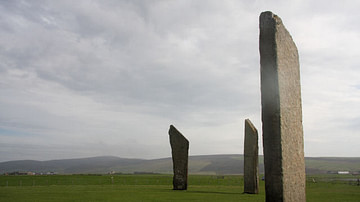
Image
Standing Stones of Stenness (Illustration)
The so-called Standing Stones of Stenness is a Neolithic monument on the island of Orkney, Britain. The four standing stones (each about 300 mm thick and measuring up to 5 m tall) were once part of a massive henge monument which included...
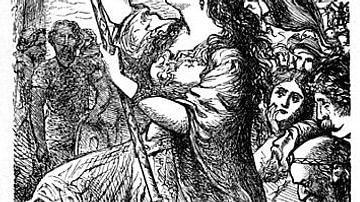
Image
Queen Scota Unfurls the Sacred Banner
Scota, the mythological progenitor of the Gaels, as depicted by John Fergus O'Hea, 1838-1922 CE.
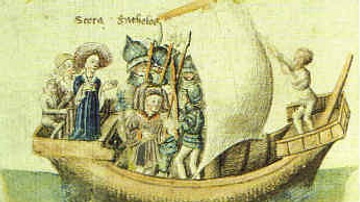
Image
Scota and Goidel Glas (Illustration)
This illustration from a 15th Century CE manuscript of Walter Bowers' epic Scotichronicon portrays Scota and Goídel Glas, the legendary progenitors of the Gaelic people.
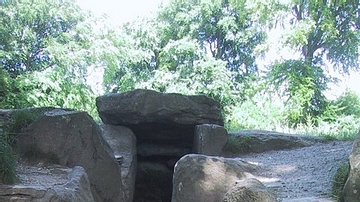
Image
Entrance to Wayland's Smithy
Wayland's Smithy is a Neolithic long barrow and burial chamber in Oxfordshire, England which dates to the 4th Millennium BCE. The site was built in two phases, a timber oval chamber was constructed c. 3570 BCE, and the stone long barrow pictured...
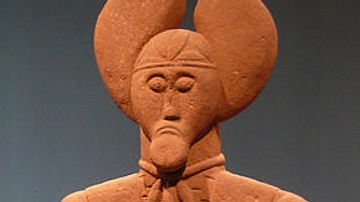
Image
Prince of Glauberg
The so-called "Prince of Glauberg" is a life-sized sandstone statue of a Celtic ruler from modern day Glauberg, Germany. The "Prince of Glauberg" is depicted with a mail tunic, a wooden shield and a sword, indicating his status as a warrior...
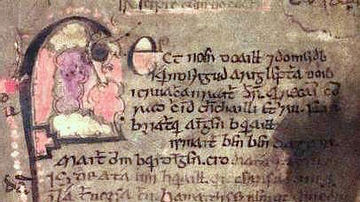
Image
Page from the Book of Leinster
This page is from the Book of Leinster, a manuscript from 12th Century CE Ireland which contains fragments of many other works including the Lebor Gabála Érenn. The Book of Leinster is currently in the collection of Trinity College, Dublin...
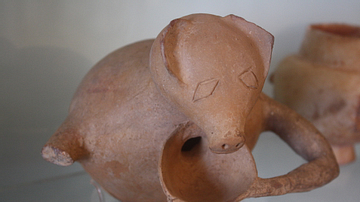
Image
Cycladic Piglet-Shaped Vase
An early-Cycladic vase in the form of a piglet. 2800-2300 BCE. (Archaeological Museum of Naxos, Greece)

Image
Odysseus Escaping Polyphemos
A scene from a Greek black-figure pottery vase showing the hero Odysseus tied to a sheep as a means of escape from the cyclops Polyphemos. Unknown date. (Mykonos Archaeological Museum)
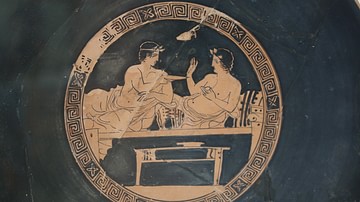
Image
Greek Symposium Scene
A scene from an Attic red-figure drinking cup showing two males at a symposium. First half of the 5th century BCE. (Mykonos Archaeological Museum)
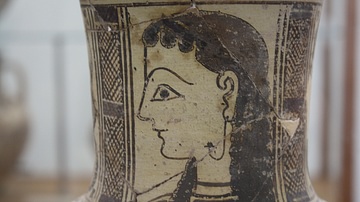
Image
Archaic Greek Woman
A detail from a 'Melian' vase depicting a Greek woman of the archaic period. First half of the 6th century BCE. (Mykonos Archaeological Museum)